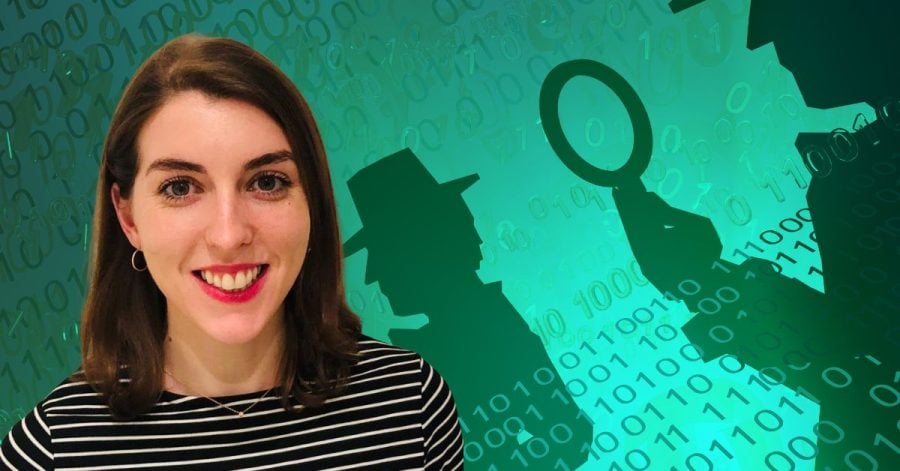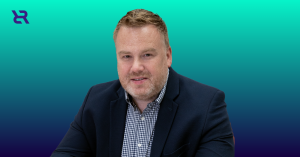The fight against financial crime is increasingly complex, with the rise of organized crime groups making use of technology to scale fraudulent operations. From identity theft and cloning to forging false documents, these groups continue to use sophisticated methods to dodge the law.
Resistant.AI, a Prague-founded technology startup, is tackling this challenge with its solutions. After raising USD 16.6 million for their series A round in 2021, led by Google Ventures, the company took the momentum to propel itself upward in 2022 and early 2023 – by increasing its customer base, product offering, and close partnerships.
In this interview, Katherine Gormley, the Product Manager for AML (Anti-Money Laundering) in the company, shared some insights into the company’s achievements, future outlook, and how criminal organizations are evolving into the digital world.
The Recursive: Could you start by sharing a little bit about yourself and the work you do in Resistant.AI?
Katherine Gormley, Resistant AI: Yes, certainly. I’ve been with Resistant AI for just over a year, and my role is Product Manager for our AML solutions. The work includes leading the vision and direction of our AML offering, working very closely with our teams across London, Prague, and the US to ensure we understand our customers’ current and future needs and deliver a product that brings maximum value to these customers.
Which accomplishments from this past year would you highlight, seeing as they coincide with your tenure in Resistant.AI?
2022 was a very good year and a very exciting one to join the company. As you may be aware, we received our Series A funding in 2021, led by GV (formerly Google Ventures), and that propelled us in 2022. We increased our client base considerably, which coincided with receiving several awards.
For example, we won the ACAMS “Digital Crime Fighter of the Year” award twice last year, and that was a result of taking part in two hackathons at the ACAMS events. One was focused on the identification of human trafficking, and the second was around sanctions evasion – both very important topics.
We also were recognized at other awards like the Europas Awards and finally, we were listed at the AI FinTech 100 for 2022. So, it set us up nicely for further growth in 2023.
What impact did the events of 2022, with financial uncertainty and war, have had on your plans for 2023 and beyond?
I think these external events are increasing the demand for technology solutions because economic downturns put more pressure on financial services firms to do things more efficiently and effectively – doing more with less or doing more with the same.
In tandem, there’s a huge uptick in fraud and financial crimes. You often see that in times of crisis, criminals are more active, they see greater opportunity. So it’s a really fine balance for financial services firms to deal with increases in criminal activity while also trying to manage their costs in these downturns.
That creates an opportunity for solutions that can enable organizations to do more with less using technology, like ourselves. We have this concept of “identity forensics” which provides the ability to protect financial services firms from criminals or fraudsters from the time the customer is onboarded to their ongoing operations.
What do you see as the main trends in the industry for the upcoming years?
From a trend perspective or more of growing threats perhaps, we see huge rises in the criminal organizations providing Crime-as-a-Service or Fraud-as-a-Service more specifically. I think years ago, people saw fraud as restricted to opportunistic individuals, looking for ways to make money by exploiting a service, but now we see it as a large revenue stream for organized crime groups.
With the rise of Fraud-as-a-Service, everything that organizations or a fraudster would need to exploit services or financial services is being made available online. The templates, stolen information, stolen identities, and also the expertise to create synthetic identities. They provide the tools and tactics to firms so fraudsters can onboard with platforms and game the systems essentially.
We’re seeing a rise in people making tools and capabilities available so that fraud can be committed at scale, and very easily.
We have seen cases of what you call “template farms” where there’s mass production of bank statements made to look like genuine documents. Criminal organizations look for a weak link in financial services firm’s onboarding processes, so they can exploit it at scale.
What financial services firms need to be aware of, is that criminal organisations don’t have red tape or politics stopping them from making the best use of technologies and innovations.
What are the main obstacles you see now with your customers in terms of the adoption of these solutions?
We see differences between more traditional financial services firms, where some of the hurdles are around legacy systems. In general, organizations will have legacy systems in place for either fraud detection or detection of money laundering. One thing we are seeing is companies outgrowing those solutions, and looking for more innovation to help them protect against fraud and financial crimes, even though there is a reluctance to replace existing systems.
That is one of the reasons that we look to overlay existing systems to improve their performance. Our capability is API-driven, which means that we can enhance the existing systems so companies can get better value rather than replace them. We believe in a layered approach and that’s helped with some of the challenges around the cost and upheaval that’s traditionally involved with replacing solutions.
Also, for some organizations, the use of AI brings some challenges itself. From a regulatory standpoint, different regulators in different jurisdictions will have different views on this type of innovation. For some companies, there’s a little bit of a journey to educate themselves and for us to help them understand the powers of AI. This allows them to communicate to their regulators that they can use this technology responsibly and that there is a level of transparency and explainability.
I think there has been traditionally a bit of a reluctance for companies to adopt certain AI-based solutions because there was always the perception that it is a black box.
That being said, we’re seeing both regulators and companies moving with the change and getting more comfortable with AI-based solutions, but we still have a little bit of a way to go.
As the Product Manager of a solution that mixes deep tech, law, and understanding of crime, how do you keep yourself up to date?
I try to read and keep up to date with what’s on LinkedIn. I think attending networking events and talks is valuable because that’s where you get updates from various people in the community. There are really strong anti-financial crime networks, across the UK and Europe, and that’s where I find it beneficial to hear firsthand from people within the financial services industry as well as other tech vendors.
It brings together the worlds of tech and the criminal side of things. However, I do like reading what comes out from regulators or enforcement action. That is a really big source of information, and it is quite useful to read the details of enforcement actions and be able to see what is happening on the ground.
I have also done courses, like the ICA and I’m a member of professional bodies. From a formal and academic perspective, I find it quite helpful to get a foundational knowledge in the industry.
The challenge is there are so many resources and information coming out to you. That’s why I find the events and the actual discussions with people in the industry important. They bring out the essence of what is going on.







